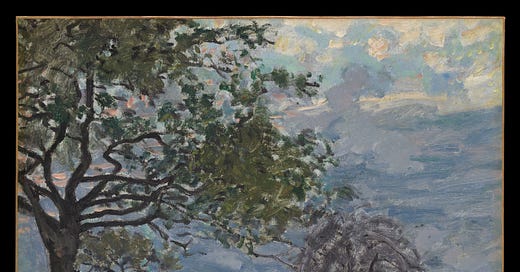My son’s half dad has a knack for packing up quick, making good plans, which he hopes makes him a good person. Funny what that lady won’t weigh. Packed up all my undies he’d borrowed and had his mama bring ‘em back to me, dirty. Dozens. Man doesn’t do his own washing, but stale needs aired. Walking round in a tee, no bra, while boobs fill and empty at toddler whim, – it’s really like Men Writing Women: constant surprise at your own breasts, growing denser. I think those men writing would be surprised to find the impetus milk. And cookies, cause I’m always hungry. Toast. Maybe, at bottom, I can tell a good man from a bad, at least of the ones I let close, by which leave me hungry. After dinner at the neighbor’s, I sit down to feast: wine, a whole turkey leg, the carrots and potatoes from underneath. I eat with my hands, listening to rain. It’s always been like this: dinner after dinner for no one measures right the width of hunger. As children we would eat two bowls of cereal when we got home, or bean toast because no one offered thirds, expected us to eat. After, I break the turkey down. One of my first chores was deboning chicken. I remember sitting there at table, three or four, after dinner, windows dark, the entire steaming bird before me, sorting bone and flesh into separate bowls trying not to burn my fingers while mother washed up. “All done!” and she would inspect. “There’s still meat on.” Chores are always like that. Keep on. My son’s half dad is also half a person, a Rex: “He simply wasn’t all there. He wasn’t a complete human being at all. He was a tiny bit of one, unnaturally developed (. . . ) A tiny bit of a man pretending he was the whole.” Cardboard cutout toppled –he’s not at home, at home — he once said he hadn’t got a “rich inner life – just a medium one, I guess,” and, I, fool, didn’t turn him over then, find the hollow in his chest, slot for coin, which turns on the automaton: raised a fundraiser, taught nothing else, wound up shedding snakeskin, lips first. They’re beautiful, poised in glass cases, iridescent, but if you take one out, he’s just a dead beetle on a pin. Turning away stoppers your soul like “something in a bottle, an organ kept alive in a laboratory.” The bunny who never ran away can’t make home: mama will erase, paper over, send you to slum a night to gawk and hand out snacks as you trace outlines into your college application, and years later you’ll still yell, drunk, “I have close friends from the slums!” but will admit, when pushed, you’re “not in touch,” but poverty tourism made you cosmopolitan, policy-minded, just as the girl with the postage stamp of Paris got you Paris, which you’re proud of. She thought she was weaving a life, and four years in you mailed her home: “thanks for fucks and fun, I never wanted you for long.” Never had chores. Never learned the keep on. Years later, you confessed you always knew, let her pattern. Her family hadn’t money: she could be returned. The poor are always with us. You took and ate unworthily. Hunger seen has seven baskets over. Make an altar of earth, for the eternal word and its silence is other, far other and in that silence, still, a live coal comes.
1
Quotes from Bk I Ch 7 Brideshead Revisited; line on silence modified from Augustine’s Confessions Book 11, section VI, Sheed translation.


